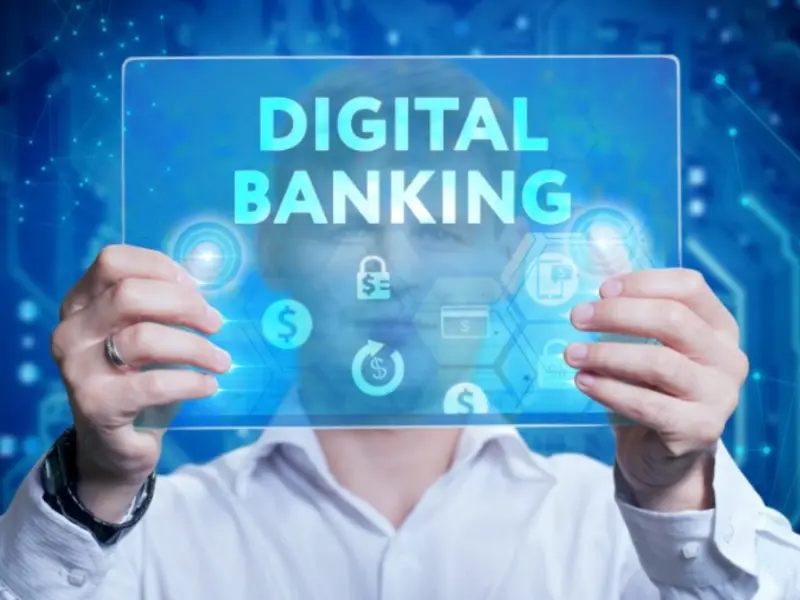- Digital banking and online banking are terms often used interchangeably, but they have distinct meanings and scopes.
- Online banking is a component of digital banking, digital banking represents a broader evolution in the banking industry, integrating various digital technologies to provide a more comprehensive and modern banking experience.
- Online banking provides convenience for basic tasks, digital banking offers a more comprehensive and advanced banking experience.
Digital banking represents a transformative shift in the banking industry, leveraging modern technology to offer a more efficient, accessible, and personalised banking experience.
It not only includes the traditional functions of online banking but also encompasses a broader range of services and innovations designed to meet the evolving needs of today’s digital-savvy customers.
What is digital banking?
Definition
Digital banking refers to the full digitisation of traditional banking activities and services that historically were only available to customers when physically inside a bank branch.
It involves the use of technology to provide banking services and solutions through digital platforms, offering a more efficient, accessible, and user-friendly experience. Digital banking goes beyond just online banking by integrating various advanced technologies and platforms to create a cohesive and comprehensive banking ecosystem.
4 examples of digital banking
1. Mobile banking apps
Banks offer apps that allow customers to manage accounts, transfer funds, deposit checks, and pay bills.
2. Digital-only banks
Financial institutions like Chime, N26, and Revolut operate entirely online without physical branches, offering competitive services through digital platforms.
3. Online loan applications
Customers can apply for loans and receive approval through digital platforms without visiting a branch.
4. Blockchain-based services
Some banks use blockchain technology for secure and transparent transactions, especially in international money transfers.
Also read: Blockchain in banking – key opportunities and challenges
What is online banking?
Definition
Online banking, also known as internet banking or web banking, is a service provided by financial institutions that allows customers to conduct a variety of banking transactions and activities over the internet.
It typically involves accessing a bank’s website or mobile app to manage personal or business accounts, perform financial transactions, and access banking services without needing to visit a physical bank branch.
3 examples of online banking
1. Bank of America online banking
Allows customers to view account balances, transfer funds, pay bills, and deposit checks using their mobile app.
2. Chase online banking
Offers features such as online bill pay, account management, and mobile banking services.
3. Wells fargo online banking
Provides tools for personal finance management, bill payment, and fund transfers.
Also read: Revolutionising finance: How open banking and DeFi work together
Key difference
Online banking is limited to internet-based access to banking services. It has basic services like account management, funds transfer, and bill payment. And typically focused on functionality and accessibility through the web and mobile apps. Online banking need primarily internet and mobile-based interfaces.
As for the digital banking, it encompasses a holistic transformation of banking services through the use of digital technology. A wider array of services including AI-powered assistance, digital wallets, blockchain, and more.
Its aims for a seamless and integrated experience across various digital touchpoints. And digital banking utilises a range of technologies including cloud computing, AI, machine learning, and blockchain.

